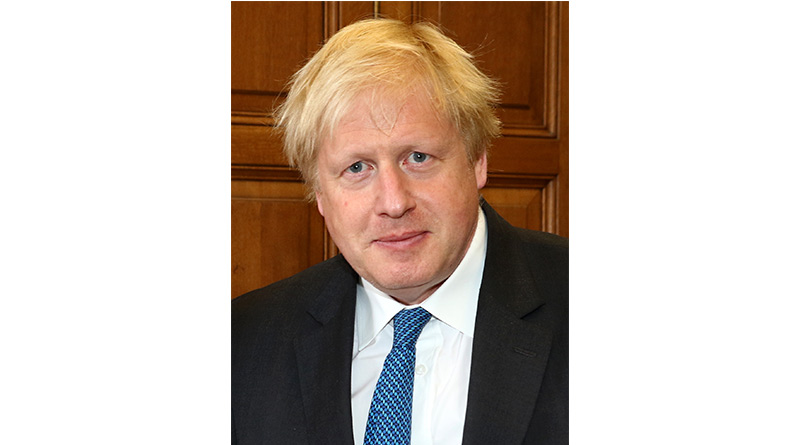Prime Minister Confirms Move to Plan B in England
The Prime Minister has confirmed that England will move to Plan B following the rapid spread of the Omicron variant in the UK.
Urgent work has been ongoing to understand the impact of the new variant with regards to vaccines, treatments and transmissibility. Early indications showed a large number of concerning spike protein mutations as well as mutations in other parts of the viral genome.
On Saturday 27 November, the government acted to slow the spread of Omicron while more data was collected and assessed.
The most recent data suggests that Omicron has a very high growth rate and is spreading rapidly. S-gene drop out cases have grown from 0.15% of cases during the week of 21st November, to 3.3% of cases since 5 December in England. There are currently 568 cases confirmed across the UK and early analysis from the UK Health Security Agency suggesting the doubling time could be as little as 2.5
The government says it will continue to look closely at all the emerging data but vaccines remain our best line of defence and it is now more vital than ever that those who are unvaccinated come forward, and those eligible for their boosters book when called.
Today the NHS confirmed a huge expansion of the booster programme, with the National Booking Service now open to all those aged over 40 to book their jabs. The dose interval has also been shortened from six months to three months, with those eligible now able to book a month in advance – two months after their second dose.
The vaccine programme will be supported by the continued development of world-leading treatments. Today the Prime Minister confirmed a new national study that will see 10,000 UK patients at risk of serious illness from COVID-19 given the treatment molnupiravir to treat their symptoms at home.
Testing will also be a vital tool in controlling the spread given the likely increased transmissibility of Omicron. As there is now demonstrated community transmission of Omicron, we intend to introduce daily contact tests for contacts of confirmed positive cases instead of the ten-day self-isolation period.
- From Friday 10 December, face coverings will become compulsory in most public indoor venues, such as cinemas, theatres and places of worship. There will be exemptions in venues where it is not practical to wear one, such as when you are eating, drinking or exercising. For that reason, face masks will not be required in hospitality settings.
- From Monday 13 December, those who can will be advised to work from home.
- From Wednesday 15 December, and subject to parliamentary approval, the NHS Covid Pass on the NHS App will become mandatory for entry into nightclubs and settings where large crowds gather – including unseated indoor events with 500 or more attendees, unseated outdoor events with 4,000 or more attendees and any event with 10,000 or more attendees.
People will be able to demonstrate proof of two vaccine doses via the app. Having considered the evidence since the emergence of Omicron, proof of a negative lateral flow test will also be accepted.
Introducing Covid-status certification from next Wednesday will give businesses a week’s notice, as promised in the government’s proposals for introducing mandatory certification published in September.
A full list of guidance on these changes will be available on gov.uk in the coming days. Face covering regulations will be laid in parliament tomorrow, with the remaining regulations laid on Monday 13 December.
Parliament will debate the measures next week, with a vote expected to take place on Tuesday 14 December.
The government will keep the data under constant review. The regulations set to expire six weeks after implementation, with a review after three weeks.
Taken together, the government is hopeful these measures will reduce transmission and slow the spread of the Omicron variant, and will continue to urge those eligible to get their boosters when called.
Responding to the announcement Dr Chaand Nagpaul, BMA council chair said: “Nobody wants to see further restrictions placed on their lives because of Covid-19, but the Government’s decision to implement Plan B today is the right one, and should remain under consideration as we head deeper into the winter months.
“We’ve had increasingly high incidences of Covid-19 for some time now – more than 339,861 across the UK in the last seven days alone – and healthcare workers are rightly worried about the impact the Omicron variant could have on the ability for the NHS to function if cases continue to rise at the rapid rates already seen.
“We’re already seeing some hospitals cancelling elective care again, ambulances queuing for hours on end, and patients suffering as a result of the existing pressures on the system and the backlog. There is no slack in the NHS, so while the number of Covid hospitalisations today is much lower than last winter, we must not risk complacency by ignoring the rapid doubling of omicron cases every 2 to 3 days, which may result in hospital admissions in the weeks to come. This threatens to overwhelm the health service and could have a major impact on the NHS’s ability to cope this winter.
“Today’s measures – particularly those encouraging people to work from home again – are sensible, but it’s also vital that Government ensures it is made as simple and easy as possible for people to receive their booster, or even their first and second jab – especially in vulnerable groups or among those where uptake is lower.
“We understand why some people might feel frustrated at the reintroduction of new measures but by acting now we can save lives, reduce pressure on the NHS and avoid more draconian restrictions in the future.”






